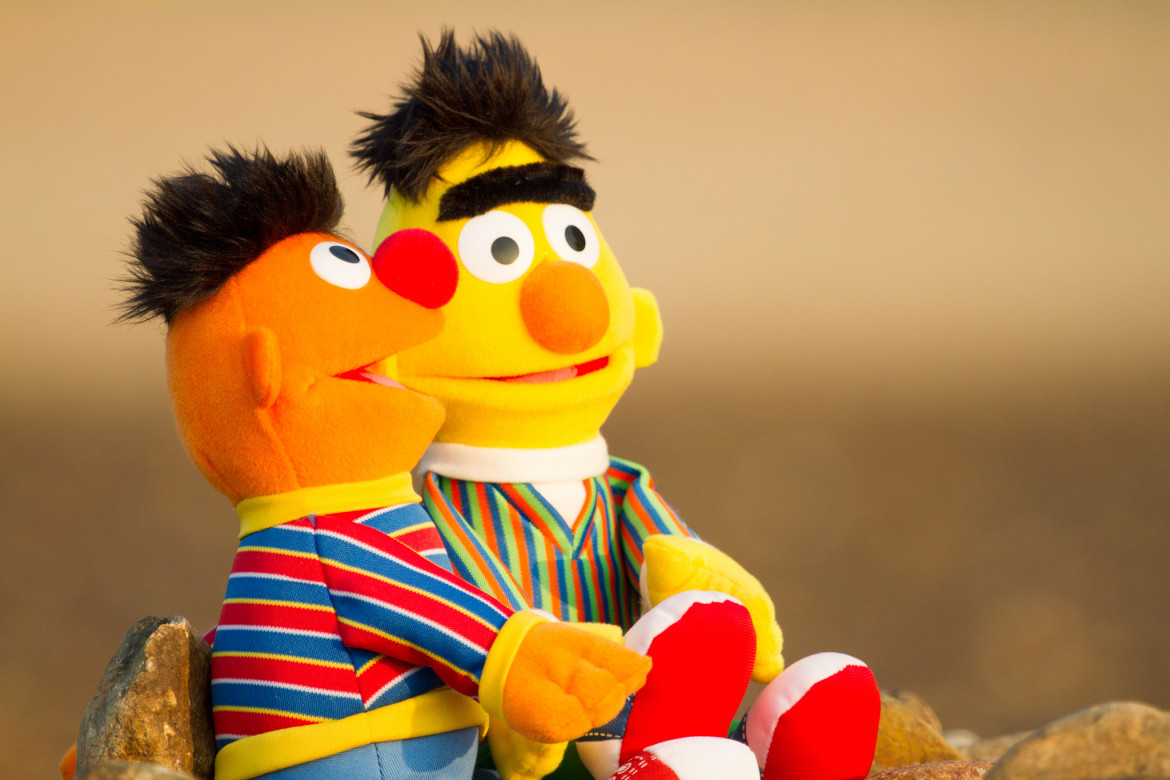‘The Pub’ #32: The future of children’s public television

(Photo: See-ming Lee, via Flickr)

(Photo: See-ming Lee, via Flickr)
Depending on who you talk to, either HBO is throwing Sesame Workshop a lifeline that’s saving America’s most beloved children’s program, or a greedy developer is converting the working-class tenement buildings on Sesame Street into luxury lofts.
Either way, it’s clear that HBO’s 5-year deal to bring new episodes of the signature PBS children’s show to premium cable cuts to the very core of public television’s identity.
On this week’s episode of The Pub, I offer my thoughts on the Sesame Street news. We also revisit an old conversation with PBS Vice President for Children’s Programming Linda Simensky about the thus-far futile search for the next Fred Rogers, Sesame Street’s role as an emblem for all of public media, and the new kids’ shows on PBS that are trying to honor the legacy and values of the classic programs.
Also on the show:
- In another encore segment, Deanna Garcia of WESA in Pittsburgh takes us to an exhibit of Mister Rogers’ Neighborhood set pieces on display at the Heinz History Center in Pittsburgh.
- We revisit my guide for how to pick theme music for your show, and how not to.
Please subscribe to The Pub in iTunes or your favorite podcast app, and leave us a rating and a comment! That will help boost our search results and allow people to find the show more easily.
We welcome your feedback on the show: You can reach me at adam@current.org or @aragusea on Twitter; my supervising producer at Current, Mike Janssen, is at mike@current.org; and you can contact Current generally at news@current.org or @currentpubmedia on Twitter.
If you’d like to offer a comment to be used in the program, please send on-mic tape (recorded in a studio, with a kit, a smartphone, anything) to adam@current.org either as an attachment or through Google Drive. Please keep it short!
Adam Ragusea hosts Current’s weekly podcast The Pub and is a journalist in residence and visiting assistant professor at Mercer University’s Center for Collaborative Journalism.






That is a lovely straw man you’ve constructed, Adam. So plump, so full of fresh cut straw.
Perhaps we’re just reading different essays, but those I’ve seen putting forward the “gentrification” argument have not claimed that five-year-olds care about whether the episodes they’re watching are nine months old; to the contrary, the consensus appears to be that for the target audience, the time gap is a non-issue.
What it’s primarily been about is the optics of giving a premium channel an exclusive window on a program created with public funds, specifically intended to reach at-risk kids, and built around inner-city iconography. It’s about the terrible message that sends to parents, donors and congresspersons.
My own issue is that I don’t yet accept the official narrative, which suggests that a show sold in 150 countries, with two dozen localized co-productions, cannot sustain itself. A lot has been made about the drop in DVD sales, but other licensing deals–toys, bedding, housewares, etc. etc.–have gone unmentioned. And, according to a 2012 Slate article (http://www.slate.com/articles/business/explainer/2012/01/does_sesame_street_lose_money_.html), operating expenses for the Workshop were $133 million, yet only about $17 million went toward production of the domestic version of “Sesame Street.”
You dismiss a $800,000 salary for a puppeteer–as if .6% of annual revenue is insignificant, especially if others are also pulling in high six-figure salaries–but as someone who has made a career in public media, watching an endless cavalcade of lay-offs, cutbacks and consolidations, I’d argue that belt-tightening wouldn’t be unreasonable to expect.
David, I think you’re taking those comments too literally. I wasn’t actually commenting on the substance of the issue, I was just reciting some of the general reaction I’ve seen before offering some comments on this from a PR perspective. I absolutely did not dismiss the $800k salary, I think it’s outrageous. I just doubt it’s the problem.
As I wrote, we must’ve been reading different reactions. I haven’t seen any that argued that the nine-month delay would have a significant effect on the audience. Neither have I found anyone advancing the theory that HBO inevitably would influence the content. What I’ve read–on Time, Salon, Gawker, and even PC Mag–has been about how the move to HBO reminds the families of at-risk kids that they will always be second-class citizens.
My concern with the manner in which you characterized the second narrative is that you made follow-up arguments on its behalf:
“I’m not sure what the people who are advancing it would’ve wanted Sesame Workshop to do instead…cut down on executive compensation?”
“So I suppose those crying ‘gentrification’ on ‘Sesame Street’ wish that the Workshop or public television would’ve just stood up, rung the alarm bell, and said, ‘Hey! Members of Congress; Viewers Like You…we need more money to keep this thing going! Pay up!”
Followed immediately by lyrics from “The Rainbow Connection.” Look, I like that song very much, but here it came off as a condescending riposte to the straw men you’d just installed.
Those may indeed be what some are asking, but we both know that those are simplistic views. No, executive compensation likely wasn’t the problem, but it certainly may have contributed to the problem. And Congress wouldn’t have saved the day, but was sitting on the news of the Workshop’s purported financial problems until there was no alternative but HBO a wise choice? There are more nuanced points to be raised about how we all arrived here, and I look to Current and The Pub to put them forward.
I really enjoyed the segment on theme music (BTW, I really love The Pub’s theme!). My favorite example of a dated theme is “As It Happens” — I realize it’s a Canadian show but it airs here in the SF Bay Area on KALW. They’ve tried to update it a little bit, but at its core, it’s such a relic of the 70s that you half expect the news that follows the theme to be about Jerry Ford or the Camp David Accords.
They tried a long time ago to change the theme (which for the record is Moe Koffman’s “Curried Soul,” even if it sounds like the Motown song “25 Miles”–the closing theme is Koffman’s “Koff Drops”), but the listener complaints were hot and heavy, so back to “Curried Soul” it was. It’s already proven that the NPR listeners will tolerate new arrangements of the “ME” and “ATC” themes, but if NPR ever changes the themes completely, look out. (And since they haven’t updated the “ATC” theme in 20 years, I would suspect that if a new version had any sort of hip-hop sound to it, there would be much disgust among listeners.)